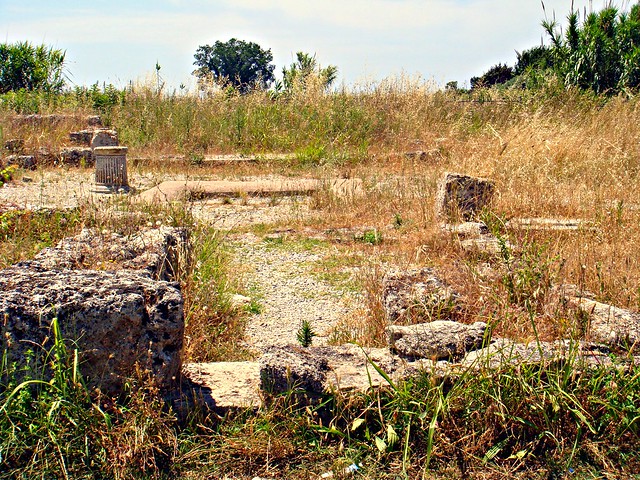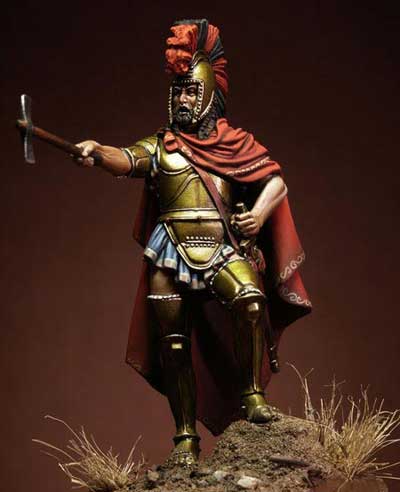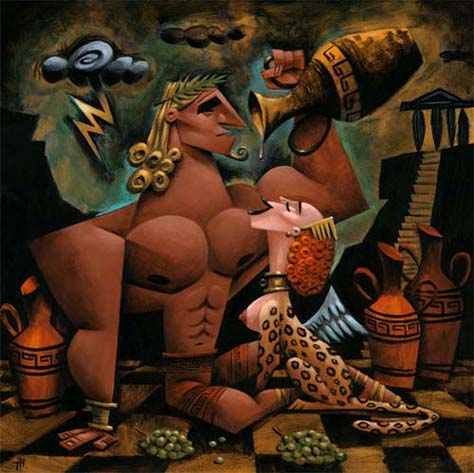This timeline is a redo of "There but for the grace of gods" a timeline where Rome is destroyed, hopefully this timeline won't have to be redone but until then, enjoy. We will start with a flash forward to the present day:
Chapter 1 - Days of War
Part 1 - Troubled Teachings
Lennene School of Higher Learning, Neos Megálē Ellás
(OTL: New York City)
The students filtered into class, the teacher is the first Oscan teacher to teach at the Lennene [1] school. He walked to the front of the class just as the final students streamed in.
In perfect Lennene he wrote on the board: “What does Italia mean to you?”
Then he turned and looked at his class; “Tell me,” he commanded, “what do you know about Italia?” Instantly about 10 hands stuck up. He pointed to one hand; the student stood up, and said; “It is a peninsula in the Mediterranean Sea.” The instructor smiled; “Come, come, that must not be all you have heard?”

The student gulped loud enough that it could be heard from the back rows; however he spoke softly now; “The region of Italia is a monarchy controlled by Vetio [2], one of the oldest countries in the world.”
He could feel the instructor gazing through his eyes now, it felt as if he was looking into his very soul now; “You know what I am referring to… what was your name? Achaikos?” The timid student responded simply with “Yes, my name is Achaikos.” The instructor nodded, “Okay, if you feel that way I will ask someone else.” The student sat down, and muffled a brief “Thank you.”
The instructor turned toward another hand raised that seemed more eager to add to the conversation. The student shot up and stated firmly, “The Vetio government is a brutal dictatorship that has oppressed its citizens for decades under the leadership of the current Elvetorix [3]. The Lennisk [4] and Phenisians [5] however continue to engage in ruthless ethnic feuding in the south.” The instructor now grinned with satisfaction, “Thank you, umm… Cameron [6] is it? That is an Illyrian name isn’t it?”
Cameron responded, “Yes, I’m a 'Pirotis [7].” The instructor now stopped for a second, he considered this and then continued. Finally he started his lesson.
[1] Hellene or Greek.
[2] Guess where that comes from.
[3] I will tell you if you guess correctly, this should help a little (EDIT: Dathi THorfinnsson is correct (Helvetii)).
[4] Italian Greeks.
[5] Phoenicians.
[6] Wait, what? A celtic name used by the Illyrians. WTF? (EDIT: thank you Cimon, I was mistaken)
[7] Epirote (Epirotis is non-romanized version), someone from Epirus.
Chapter 1 - Days of War
Part 1 - Troubled Teachings
Lennene School of Higher Learning, Neos Megálē Ellás
(OTL: New York City)
The students filtered into class, the teacher is the first Oscan teacher to teach at the Lennene [1] school. He walked to the front of the class just as the final students streamed in.
In perfect Lennene he wrote on the board: “What does Italia mean to you?”
Then he turned and looked at his class; “Tell me,” he commanded, “what do you know about Italia?” Instantly about 10 hands stuck up. He pointed to one hand; the student stood up, and said; “It is a peninsula in the Mediterranean Sea.” The instructor smiled; “Come, come, that must not be all you have heard?”

The student gulped loud enough that it could be heard from the back rows; however he spoke softly now; “The region of Italia is a monarchy controlled by Vetio [2], one of the oldest countries in the world.”
He could feel the instructor gazing through his eyes now, it felt as if he was looking into his very soul now; “You know what I am referring to… what was your name? Achaikos?” The timid student responded simply with “Yes, my name is Achaikos.” The instructor nodded, “Okay, if you feel that way I will ask someone else.” The student sat down, and muffled a brief “Thank you.”
The instructor turned toward another hand raised that seemed more eager to add to the conversation. The student shot up and stated firmly, “The Vetio government is a brutal dictatorship that has oppressed its citizens for decades under the leadership of the current Elvetorix [3]. The Lennisk [4] and Phenisians [5] however continue to engage in ruthless ethnic feuding in the south.” The instructor now grinned with satisfaction, “Thank you, umm… Cameron [6] is it? That is an Illyrian name isn’t it?”
Cameron responded, “Yes, I’m a 'Pirotis [7].” The instructor now stopped for a second, he considered this and then continued. Finally he started his lesson.
[1] Hellene or Greek.
[2] Guess where that comes from.
[3] I will tell you if you guess correctly, this should help a little (EDIT: Dathi THorfinnsson is correct (Helvetii)).
[4] Italian Greeks.
[5] Phoenicians.
[6] Wait, what? A celtic name used by the Illyrians. WTF? (EDIT: thank you Cimon, I was mistaken)
[7] Epirote (Epirotis is non-romanized version), someone from Epirus.
Last edited:


